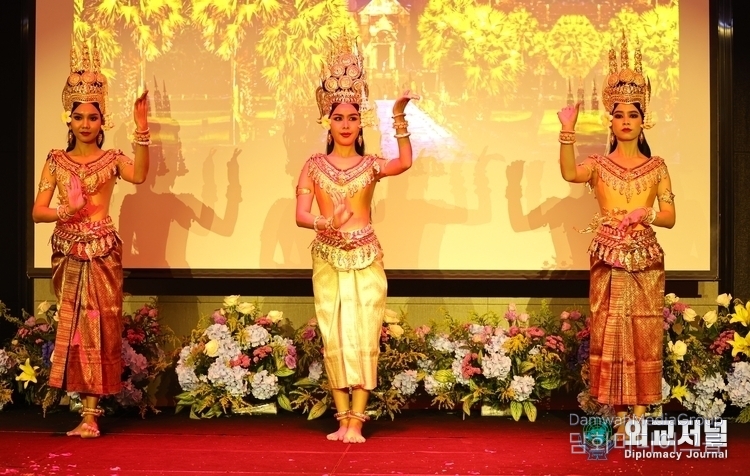By UN Journal Lee Jon-young
Once known as the ‘Smile of Angkor Wat,’ Cambodia is no longer a peaceful tourist destination. The recent case of Korean university student Park (22) being kidnapped, imprisoned, and murdered locally is a symbolic cross-section of this reality.
His tragic death is not merely the misfortune of one individual, but reveals the true nature of a ‘country where crime has become an industry’. Cambodia has rapidly grown as a Southeast Asian tourism hub, but its underbelly is dark. An ‘invisible criminal market’—a tangled web of online scams, illegal gambling, human trafficking, organ trafficking, and drug deals—has grown massive in the shadows of the tourism industry.

Outwardly, there are smiling tour guides and resorts, but behind them lies a paradise for criminal cartels profiting from foreigner kidnappings and human trafficking. The area known as the ‘Golden Triangle’—Phnom Penh, Sihanoukville, and Battambang—is already notorious as a hotbed of international crime. Cyber fraud rings and human trafficking gangs openly deceive foreign workers and tourists, luring them in before imprisoning, assaulting, and forcing them into labor.
Suspicions have even been raised that some police officers and local officials take bribes from these criminal organizations to cover up cases or cooperate with them. This is where law becomes a servant of money, and human life is traded as a commodity—this is Cambodia today.

The murder of the Korean university student fits this same pattern. Although evidence of his confinement emerged just days after Mr. Park went missing, the local investigation was marked by sluggishness and indifference. Despite repeated requests for investigative cooperation from Korean police through the Ministry of Foreign Affairs, the Cambodian side stalled, citing ‘procedural issues’.
Ultimately, his body was discovered two months after his disappearance. Is there another country that claims to be a tourist nation yet treats the lives of foreigners so lightly? Cambodia is now laundering its image under the banner of ‘tourism’. But the reality is that it is an exporter of crime, a structure that converts people into money.

Behind the city's glittering neon signs, countless foreign victims, their faces never known, weep. The Korean government must not treat this incident as merely a ‘diplomatic mishap’. This is not a matter of diplomacy, but of the lives of its citizens – a fundamental duty of the state. The phrase ‘all-out response’ should not be an excuse after the fact, it is a system that must operate before incidents occur.
Citizens have the right to protection when they travel. If the Cambodian government lacks the will to ensure foreigner safety, the international community must hold that country accountable. Foreigner abductions and murders cannot be packaged as mere side effects of tourism.
As long as Cambodia turns a blind eye to this reality, their smiles are no longer the ‘smiles of tourism’ but merely masks stained with blood. “Behind the smiles of tourism lies the blade of crime. Human life must not become a commodity of tourism.”




